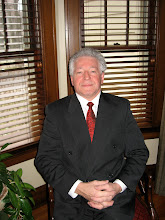Trudy Rubin:
Middle East needs new borders
ERBIL, Iraq -- Massoud Barzani, the president of the autonomous region of Iraqi Kurdistan, has an urgent message for world leaders:
As for the Kurds, they have been dreaming of independence since the 1923 Lausanne Treaty between the World War I allies and post-Ottoman Turkey. That document reneged on a promise to carve a Kurdish state out of the remains of the Ottoman empire and allow this non-Arab ethnic group to have its own home.
Iraq's Kurds have had an increasing degree of autonomy since 1991, when the United States protected them with a no-fly zone against Saddam. Despite a severe economic crisis and internal political strains, the Kurdish region is the most stable part of Iraq, and has played a huge role in repelling the Islamic State. It has also welcomed minorities, including tens of thousands of Christian and Yazidi refugees.
Barzani believes an independent Iraqi Kurdistan could be an oasis of stability for the entire Mideast.
I asked whether his vision of statehood would include the Kurdish-populated portions of neighboring Turkey, Iran, and Syria, a prospect that greatly unnerves Ankara and Tehran.
"I think each part of Kurdistan within the last 100 years has its own special status," he answered quickly. "Our focus and strategy is for Iraqi Kurds alone."
Barzani's critics argue that the referendum is only meant as a distraction from his domestic problems. And the external barriers to independence are high:
Iraq's central government opposes independence, as does Iran. Turkey -- which has excellent relations with Iraq's Kurds -- is unlikely to warm to the idea now that it is embroiled in conflict with its own Kurds and those of Syria.
Moreover, the United States is still wedded to the idea of a unified Iraq, and won't endorse Kurdish independence, as the White House has made clear to Barzani.
The Kurdish leader says he will consult with the neighbors, and with Baghdad. "Independence would be based on talks and dialogue and negotiations with others," he said.
As for Washington, he adds, "If the U.S. will not be against us, will not oppose it, we will be very grateful."
Barzani insisted that the current federation between Iraqi Arabs and Kurdistan had "failed openly. If it had succeeded, our plans for a referendum might not be on the table."
---{-=@
HICKOK


No comments:
Post a Comment